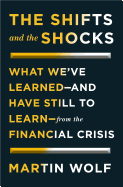 Richard Whittle (Get this book)
Richard Whittle (Get this book)They may soon be delivering this book to you, but for now, drones are anything but your friends. Put a laser, a cannon and some Hellfire missiles into an unmanned aircraft, and you have a potent killing machine. The impulse to create the unmanned drone came from an Israeli lab in response to a quite specific problem: namely, Soviet rockets with multistage radars aimed at Israeli jets by Syrian and Egyptian fighters. There's plenty of geekery befitting a Tom Clancy novel to keep readers entertained, with Whittle occasionally sliding into jargon-y prose. Such longueurs aside, Whittle's account comes to a pointed conclusion: Drone technology has already changed how we die, but what remains to be seen is how it "may change the way people live." For students of technological history and political wrangling alike, the book is endlessly interesting and full of implication.--Kirkus






